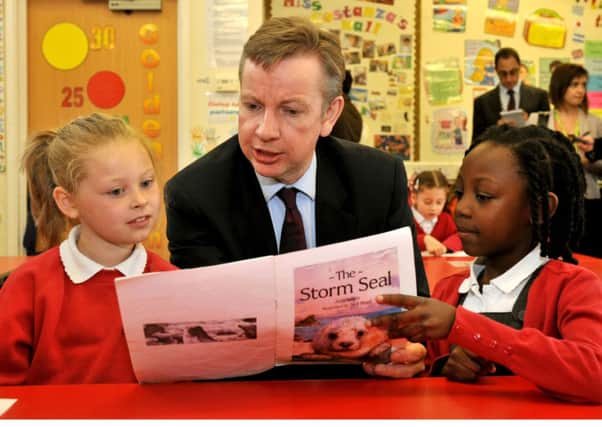Love the English language and then master the grammar


You will have spotted it, of course. If you didn’t, please go back and re-read the first dozen words. We’ll wait here for you...
Got it now? Good! “I was sat” should be “I was sitting”, of course, but such incorrect use of English has become so ingrained in everyday speech it has steadily crept into people’s efforts at writing, along with other monstrosities such as “we were stood...” and “I have wrote...”
Advertisement
Hide AdAdvertisement
Hide AdAt the other end of the scale from such basic ignorance, we have the pompous jargon of government and business, where “regularly” becomes “on a regular basis” and “in future” becomes “going forward.”
The small purple book is “Gwynne’s Grammar”, written by old Etonian banker Nevile Gwynne and recommended by Education Secretary Michael Gove to his staff, in an attempt to reduce their reliance on jargon and write with clarity and style.
Being a diligent journalist, and having spent many years as a sub-editor correcting such slip-ups as “the ex-patriot community” and “a man has been formerly charged”, I decided I must buy a copy of this book and invested £7.99 at W.H. Smith. Was it worth it? Well, maybe.
Mr Gwynne is right when he says the teaching of English grammar went down the pan in the 1960s, but he also insists children aged from six should learn grammatical rules by heart. He says they love repeating the rules, even though they don’t understand what they mean.
Advertisement
Hide AdAdvertisement
Hide AdI can imagine the faces when Year 1 teacher tells pupils: “Now put down your Janet and John books and repeat after me: ‘The direct object is the part of a sentence or clause which follows the main verb if that verb is a transitive verb, and which corresponds to the subject of a passive clause or sentence.’ Got that, children?”
I’m sure Mr Gove’s staff would benefit from reading George Orwell, Jane Austen and George Eliot, but I don’t believe we should thrust the extremely complicated rules of grammar upon the youngest children.
Let’s first have them reading books and get them to love the English language, then let’s start their grammar quite simply with subject-verb-object “the boy kicked the ball” and build up from there.